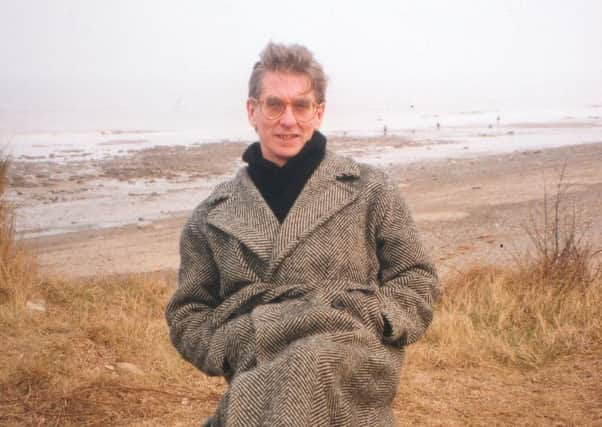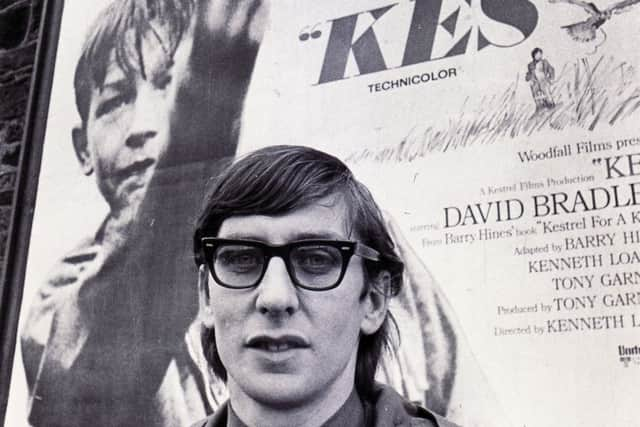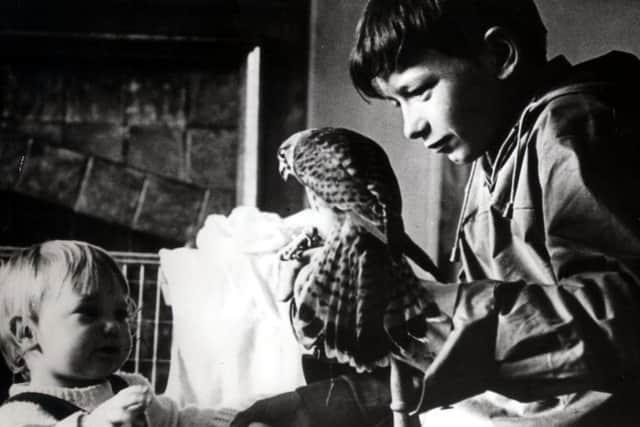Barry Hines: A voice of authenticity which enabled Kes to take flight


TEN years ago I organised a reunion screening of Kes as part of the Bradford Film Festival. The highlight was a group interview with the team that had made it: director Ken Loach, producer Tony Garnett, author Barry Hines, actor Colin Welland and writer Simon Golding, whose book Life After Kes documented the making of the film.
Hines, the teacher-turned-author whose experiences led him to write A Kestrel for a Knave, was perhaps the most reluctant to appear. Natural modesty played a part. But it was Ken Loach who said, “Barry has to be there. It all stems from him.”
Advertisement
Hide AdAdvertisement
Hide AdBarry Hines’ work was rooted in the Yorkshire of the ‘60s and ‘70s. His was an authentic voice that carried echoes of contemporaries such as David Storey, author of This Sporting Life. Both men were steeped in the mining industry and the workers who strived within it.


It was that bleak and brutal authenticity that attracted Garnett and Loach to Hines and his debut novel The Blinder. Both men were working for the BBC and Garnett invited Hines to write an adaptation for Play for Today. He refused, saying he was working on a new book and wished to finish it.
On completion he presented the book in manuscript form to Garnett who in turn showed it to Loach. From that point the film of Kes was born. Said Loach: “I did a breakdown of the book and wrote down the scenes in the order that I thought we needed them in. I slimmed it down quite a lot and then knocked it backwards and forwards between Tony and Barry. The whole adaptation was a result of the conversations we all had.”
The film that became Kes was to be shot in Barnsley and thus the dialogue by Billy Casper (David ‘Dai’ Bradley), the isolated, disenfranchised boy from a dysfunctional mining family who finds hope and redemption in a Kestrel chick, had to be spoken in a Barnsley accent.
Advertisement
Hide AdAdvertisement
Hide AdIt was, says Loach, “completely implicit” in the book. “Language is central to everything. If you have to pick one element that is important in any culture, it’s the language. It’s the use of language, the humour in the language, the way you speak and the way it affects how your body works. Everything is connected to language so there was no way we could change it.”


Loach and Garnett are to be congratulated on adhering to Hines’ vision, to not compromising (though the film was dubbed for America where the Yorkshire accents were thought to be impenetrable) and to presenting a plausible portrait of the working classes.
Hines and Loach would collaborate further throughout the 1970s and into the new millennium. Together they made The Price of Coal, The Gamekeeper, Looks and Smiles and The Navigators.
Hines’ gift was for detailed portraits of working men and the landscape that sired them. There was politics, too, but it was often cloaked in an awareness of class distinctions and the austerity of the working day.
Advertisement
Hide AdAdvertisement
Hide AdHines was active as an author and scriptwriter for 30 years and Kes remains his defining achievement. But he received as much acclaim for Threads, a devastating and unnerving 1984 BBC docu-drama about the aftermath of a nuclear attack. Made at the height of Cold War tensions, it focused not on London but on Sheffield. It was powerful, frightening and subversive. It won four BAFTAs.


The purity of Threads can be traced to the sparseness of its dialogue and Hines’ gift for character. He wrote about real people and real lives obliterated in the enormity of global politics gone hopelessly awry. Real horror in all its unvarnished and terrible beauty.
It was that talent for combining ordinariness with the wallop of raw emotion that made him a unique, outstanding talent.